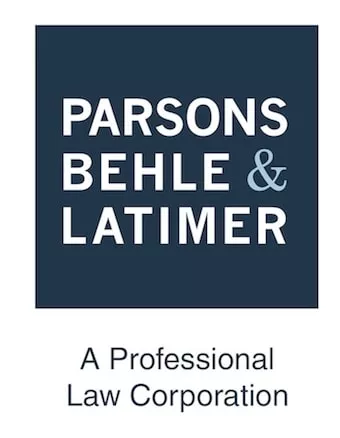- in United States
Utah's 2025 legislative session introduced significant changes to the way homeowners' associations (HOAs) operate, thanks to House Bill 217. The bill, which took effect on May 7, 2025, touches many aspects of HOA governance.
The law expands existing, and introduces new, oversight mechanisms, fee restrictions, transparency requirements, limitations on rules, and parameters on approving amendments and design review standards.
HOAs should review their current declarations (also called CC&Rs), Bylaws and Articles of Incorporation (Governance Documents), and rules and regulations and design guidelines (Rules) for compliance with HB 217.
New Oversight: The HOA Ombudsman
Perhaps the most notable change under HB217 is the creation of the Office of the Homeowners' Association Ombudsman. This office is designed to assist in resolving disputes and to help educate both boards and residents on their rights and responsibilities.
Best Practice: HOAs should bookmark the Ombudsman Office's website and use it as a first step in advice and dispute resolution.
Annual Registration and Fee Requirements
The new law requires HOAs to renew their registration with the Department of Commerce annually and allows the Department of Commerce to charge an annual fee for renewal.
Best Practice: HOAs should review their administrative procedures to ensure compliance with this requirement and add this expense to their annual budgets.
Fee Restrictions
The new law restricts the way in which funds collected as "Transfer" and "Reinvestment" fees are used. In addition, the new law requires an affirmative vote of the transfer and reinvestment fees in some circumstances, provides a method for HOA members to amend or revoke these fees and requires HOAs to deliver notice of these fees to its members.
Late assessment fees are also capped. The new law limits them to either 10% of the unpaid amount or $50—whichever is greater—plus 1.5% monthly interest.
Best Practice: Ambiguities as to the requirements imposed by the new law remain, and as such, legal review of your HOA's existing fee structures is highly recommended.
HOA's should work with their legal counsel to update their fee structures and amend the Governance Documents, if needed, and deliver revised fee policies to its members.
Transparency and Document Access
HOAs must now retain, in addition to those documents that were previously required by the law, the past three years of management committee meeting minutes, profit and loss statements and balance sheets. In addition, HOAs must respond to an HOA member's document request within two weeks—and at no cost, if the documents are shared electronically.
If an HOA fails to comply, the member may be entitled to $1,000 or actual damages—plus attorney's fees.
Best Practice: HOAs may want to take advantage of digital portals to proactively share records and reduce request burdens.
Design Review
HOA design review procedures now require written denial notices that specify the exact basis for denial including citing the specific Governance Document or Rule and the noncompliance reason for rejection.
Best Practice: HOAs should review their design criteria and procedures to ensure the criteria is sufficiently stated and the HOA is in a position to specifically defend any denials. HOAs should establish a best practice protocol and create a form for review that provides the required information to members in response to a design review request.
Use Restrictions
The new law imposes restrictions on many rules that an HOA can promulgate—in some cases in its Governance Documents, in some cases in its Rules, and in some cases, in both. These restrictions relate to regulating: content of flags and signs; vegetable gardens; parking and vehicle storage; and use of fire-resistant materials in areas with heightened risk of wildfire.
Notably, the new law restricts an HOA's ability to require certain contractors or require certain licensure of contractors, that is in addition to requirements imposed by Utah law.
Best Practice: HOAs should first confirm whether the changes in the law apply to their Governance Documents or Rules, which depends on whether the HOA is governed by the Community Association Act or the Condominium Association Act. Then, HOAs should review their documents closely to ensure that their rules comply with the new law.
HOA Governance and Amendment Rules
The law prohibits boards or management committees from unilaterally amending the HOA's governing declarations.
The law imposes a minimum required vote to approve amendments to the declaration (CC&Rs). Amendments now require a majority vote at a properly noticed meeting, attended by at least 51% of voting interests. Note that HOAs still cannot require more than a 67% vote to approve amendments to governing documents.
The law also imposes heightened standards on the declarant during the period of declarant or administrative control.
Best Practice: HOAs should immediately begin reviewing their Governance Documents and administrative practices to ensure compliance and work with legal counsel to implement any changes that may be needed.
Additional Changes
The new law makes additional minor changes to the default declarant or administrative control period, the declarant's ability to sell common area during such period and limits the HOAs ability to use certain assessments to defend against legal claims.
Best Practice: Carve out time to review HB 217 and the new and amended sections of the Utah Code Annotated and ensure that all Governance Documents and Rules comply. Get organized with administrative procedures so that your HOA is positioned to comply with all notice, review, registration and document retention requirements.
Transitioning to HB 217
Although the law took effect May 7, HOAs were not formally required to amend their Governance Documents and Rules by that date. However, any provisions that conflict with the new law will be unenforceable from that day forward. HOAs should act quickly to ensure compliance.
These changes present both a challenge and an opportunity. For more complex questions, especially regarding interpreting and amending an HOA's specific documents, consulting experienced legal counsel is the best next step.
The content of this article is intended to provide a general guide to the subject matter. Specialist advice should be sought about your specific circumstances.


